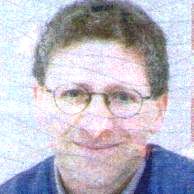Profile

- Research Subject
I am working on themes such as Russians in the Far East and Manchuria, the Japanese-Russo War from a global perspective, and the history of the Cold War in Asia.
- Research Fields
- Russian, Soviet and Emigre / Siberia and the Far East / Cold War / Northeast Asian Region Construction
- Graduate School - Division / Department / Laboratory
- Division of Humanities / Department of Slavic-Eurasian Studies / Laboratory of Slavic-Eurasian Studies
- Contact
Office/Lab: Slavic-Eurasian Research Center 529
TEL: +81-11-706-3788Foreign exchange students who want to be research students (including Japanese residents) should apply for the designated period in accordance with the “Research Student Application Guidelines”. Even if you send an email directly to the staff, there is no reply.- Related Links
Lab.letters

Professor David Wolff teaches the history of Russia at the Slavic-Eurasian Research Center of Hokkaido University. Russian history is the glue that connects all the pieces of Slavic Eurasia, since the long centuries as a great power allowed Russia to extend its influence and control over the whole northern tier of Eurasia. It is the largest country in the world and when it was the Soviet Union, it was even larger. In alternate years, Professor Wolff teaches “Imperial Russian History” from Peter the Great until the Russian Revolution or “Twentieth Century Russia,” with a focus on the Soviet experience. These two courses are open to Hokkaido University graduate students with good English skills, since both of these courses are offered as part of the kokusai kamoku.
Professor Wolff believes that it is important for every student to learn to think historically. This means learning to put events and processes into logical order to make clear which forces create which outcomes. Not only will historical thinking teach students to understand what is happening in the newspaper, but it will also teach students how to recognize when important information is missing in the newspaper. Historians learn how to fill in the blanks, both in the past and the present. We collect many materials, but we can never collect them all.
For students who wish to get a taste of what it means to think like a historian, I recommend reading E. H. Carr’s book What is History? Professor Carr was a British diplomat, who later became the first great specialist on the Soviet Union. He thought a lot about the relationship between the past and the present and the future. Does the past determine the present? Does the present influence how we write the past? Can we predict the future at all? By reading his book, you too can understand the connections between history, politics and philosophy.


